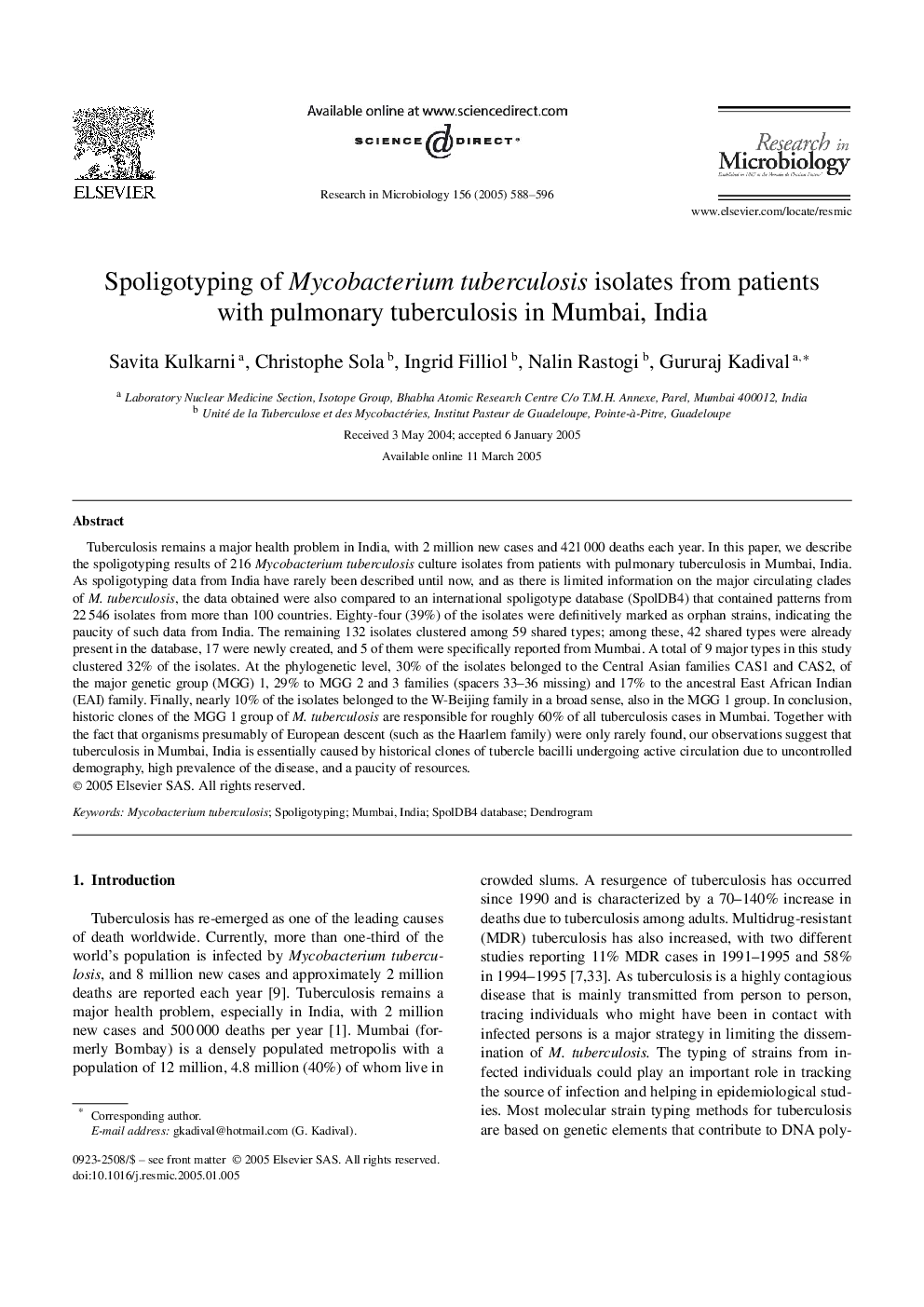| کد مقاله | کد نشریه | سال انتشار | مقاله انگلیسی | نسخه تمام متن |
|---|---|---|---|---|
| 9440156 | 1300544 | 2005 | 9 صفحه PDF | دانلود رایگان |
عنوان انگلیسی مقاله ISI
Spoligotyping of Mycobacterium tuberculosis isolates from patients with pulmonary tuberculosis in Mumbai, India
دانلود مقاله + سفارش ترجمه
دانلود مقاله ISI انگلیسی
رایگان برای ایرانیان
کلمات کلیدی
موضوعات مرتبط
علوم زیستی و بیوفناوری
ایمنی شناسی و میکروب شناسی
میکروبیولوژی و بیوتکنولوژی کاربردی
پیش نمایش صفحه اول مقاله

چکیده انگلیسی
Tuberculosis remains a major health problem in India, with 2 million new cases and 421â000 deaths each year. In this paper, we describe the spoligotyping results of 216 Mycobacterium tuberculosis culture isolates from patients with pulmonary tuberculosis in Mumbai, India. As spoligotyping data from India have rarely been described until now, and as there is limited information on the major circulating clades of M. tuberculosis, the data obtained were also compared to an international spoligotype database (SpolDB4) that contained patterns from 22â546 isolates from more than 100 countries. Eighty-four (39%) of the isolates were definitively marked as orphan strains, indicating the paucity of such data from India. The remaining 132 isolates clustered among 59 shared types; among these, 42 shared types were already present in the database, 17 were newly created, and 5 of them were specifically reported from Mumbai. A total of 9 major types in this study clustered 32% of the isolates. At the phylogenetic level, 30% of the isolates belonged to the Central Asian families CAS1 and CAS2, of the major genetic group (MGG) 1, 29% to MGG 2 and 3 families (spacers 33-36 missing) and 17% to the ancestral East African Indian (EAI) family. Finally, nearly 10% of the isolates belonged to the W-Beijing family in a broad sense, also in the MGG 1 group. In conclusion, historic clones of the MGG 1 group of M. tuberculosis are responsible for roughly 60% of all tuberculosis cases in Mumbai. Together with the fact that organisms presumably of European descent (such as the Haarlem family) were only rarely found, our observations suggest that tuberculosis in Mumbai, India is essentially caused by historical clones of tubercle bacilli undergoing active circulation due to uncontrolled demography, high prevalence of the disease, and a paucity of resources.
ناشر
Database: Elsevier - ScienceDirect (ساینس دایرکت)
Journal: Research in Microbiology - Volume 156, Issue 4, May 2005, Pages 588-596
Journal: Research in Microbiology - Volume 156, Issue 4, May 2005, Pages 588-596
نویسندگان
Savita Kulkarni, Christophe Sola, Ingrid Filliol, Nalin Rastogi, Gururaj Kadival,